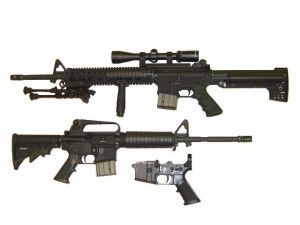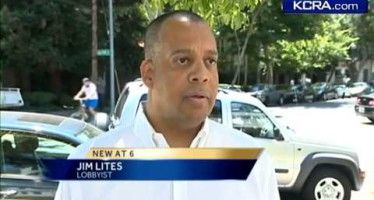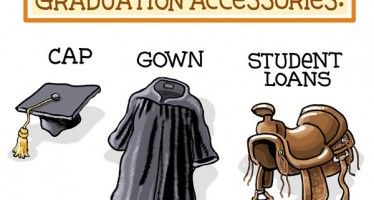CA Dems seek to export gun crackdown
By Dave Roberts
California’s Democratic politicians, not content to have enacted some of the nation’s strictest restrictions on their citizens’ right to keep and bear arms, now want to do the same to the rest of the country. The Senate Public Safety Committee on a 4-2 vote (Republicans dissenting) last week passed SJR 1, a resolution urging President Obama and Congress to ban so-called “assault” weapons and high-capacity ammunition magazines as well as require universal background checks.
State Sen. Lois Wolk, D-Davis, presented the resolution at the request of U.S. Rep. Mike Thompson, D-St. Helena, chairman of the House Gun Violence Prevention Task Force of the Democratic Caucus. The task force is pushing for a ban on “assault” weapons and magazines along with requiring background checks for every gun sale and updating the national background check database. Thompson, in a town hall meeting in Vallejo in January, rejected the National Rifle Association’s preferred solution to preventing school shootings: providing trained personnel in schools who can access weapons in an emergency.
“Existing law in California is already much stronger than the federal law in that it regulates and requires background checks for the possession and transfer of assault weapons,” Wolk told the committee on Feb. 26. “But without a comprehensive federal approach, states will remain unprotected and vulnerable in protecting their communities from the violence associated with these weapons.”
She was backed by Amanda Wilcox, representing the 25 California chapters of the Brady Campaign to Prevent Gun Violence. Wilcox’s daughter was killed in 2001 by a disgruntled patient who went on a rampage at the mental health clinic where the daughter worked.
“We need a comprehensive approach to address the problem of gun violence in our nation,” said Wilcox. “And this resolution is very simple. It urges the president and Congress to pursue that approach. I have family members and friends across the nation and want them to be safe. From a California perspective, we have strong gun laws. Guns do not stop at our border. We cannot do it alone. We need national solutions to reducing gun violence. And in particular a universal background check. So that people who cannot pass a background check in our state are unable to go across the border to neighboring states and buy a weapon through a private party sale.”
‘Assault’ weapons same as regular firearms
Two gun rights supporters spoke in opposition to the resolution.
Tom Pedersen, representing the California Rifle and Pistol Association, said his organization supports background checks and would like California to adopt an instant-check system. But he argued that, with “so-called assault weapons, there’s actually no real difference in the function of a firearm. A semi-automatic firearm, you pull the trigger each time, it discharges one round. And so to say that they are distinguishable between an assault weapon, so called, and a sporting firearm, that really is not the case.” An AR-15 semi-automatic rifle of the type he was discussing is pictured above.
Pedersen also argued against limiting the capacity of magazines.
“The reality of it is citizens want to have the same ability to protect themselves for the same reason that law enforcement officers want those high-capacity magazines,” he said. “The reality of it is that a woman by herself in her house at night who is 5-foot-2, and somebody breaks in who is 6-foot-2 and weighs 300 pounds, the firearm is the only equalizer there is.”
Ed Worley, representing the NRA, argued that the profusion and complexity of gun control laws has turned law-abiding citizens into criminals.
“Throughout the history of California, with the so-called gun bans that we’ve had in California, the biggest victims have been those who cannot understand what the law means,” he said. “Because laws are so arbitrary and capricious: if it has a pistol grip, if it has a magazine this size. What we’ve seen over the years is that thousands and thousands of people who have tried to comply with the law can’t figure out when the law took effect, didn’t know they had to register their gun again.
“The last case was a gentleman 69 years old, a school teacher who recently retired. He got in trouble because he tried to comply with the law. He contacted his state Assembly member and said, ‘I recently realized that I need to re-register my gun.’ So he went to his Assembly member to help with the Department of Justice and do the paperwork. He was informed that he needed to surrender his rifle and have it cut up.
“So in the state of California, what you have is an overly broad list of so-called assault weapons that don’t exist. So-called assault weapons are not machine guns. They are guns with various features on them. The federal assault weapons law that Dianne Feinstein [Democratic Senator from California] put into effect [from 1994 to 2004] had absolutely no effect. … You have tens of millions of people who lawfully possess high-capacity feeding devices, magazines of 10 rounds, usually 15 rounds. And now we have in the state of California legislation that is going to require them to be surrendered and confiscated. So what we are seeing in this resolution is trying to take the failed policies in California and trying to move them across the United States to people who have never committed a crime.”
Committee Chairwoman Loni Hancock, D-Oakland, who has introduced SB 396 limiting magazines to 10 rounds, responded that gun control legislation is effective.
“Of the 10 states with the strongest gun safety regulations, seven of them have the lowest level of gun crime, and that includes California,” she said. “Guns in homes result more often in suicide, or family members, mistakenly or not, killing or injuring one another, than they do for protection from outside people entering the home.”
Sen. Joel Anderson, R-San Diego, said he supports universal background checks, and would support Wolk’s resolution if it were limited to just that provision. Wolk said she would consider that. But Anderson joined Steve Knight, R-Palmdale in voting against it in committee.
Related Articles
DMV could spy on you through your license plate
A DMV “pilot” program could put digital license plates on your car. Supposedly it would “save” money so you wouldn’t
SCOTUS could shake CA’s redistricting schemes
A pair of high-profile cases taken up by the Supreme Court could invalidate California’s redistricting system, scrapping citizen-led efforts to free it up





